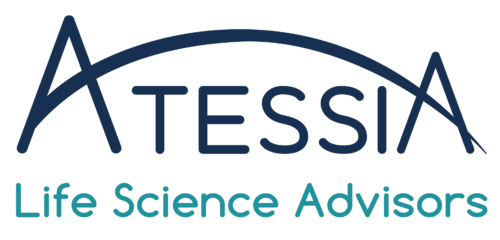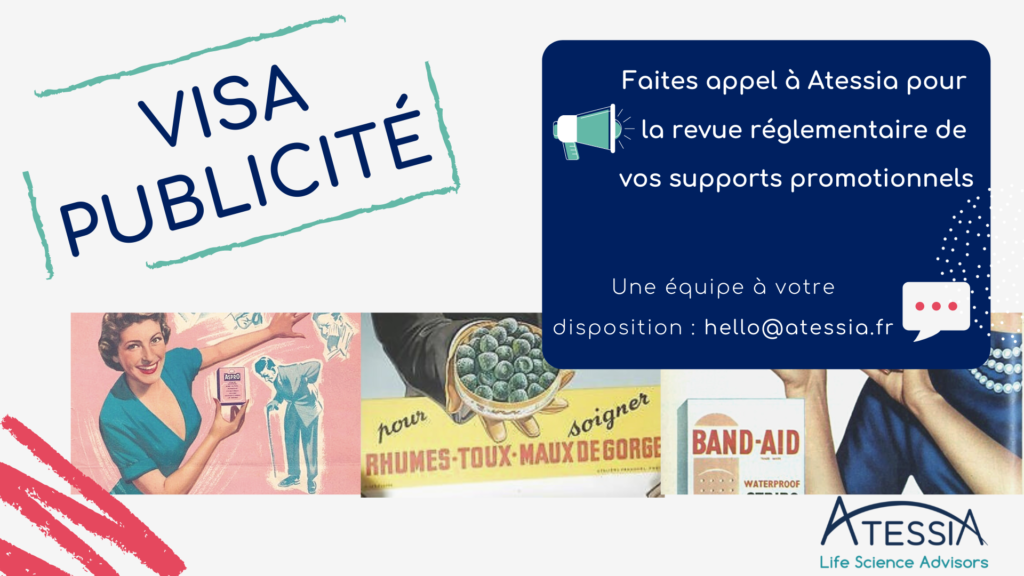| French always do it different In many domains, French people like to stand out, either in a positive or negative way. In the Healthcare field, France has set a system that is highly effective, and very protective for the patient, but at the price of a heavy state involvement and of one of the most complex regulations. As a result, understanding the regulatory specificities of France is key for entering the French market. ATESSIA can help you in this process and provide you assistance and expertise. Here are a few areas where France follows its own, often complicated and restrictive, rules. |
Prior control of advertising
The control exercised by the French Health Authorities over advertising for medicinal products is probably one of the most demanding. Any advertising for a medicine is therefore subject to control and authorization by the ANSM*. Since 2012, this authorization system has been entirely based on an a priori process, i.e. the distribution of an advertisement can only start once the precious visa has been granted. In the absence of a visa, the distribution of an advertisement may lead to criminal and financial penalties.
Regarding the content of promotional documents, in application of the French Public Health Code and taking into account the state of scientific and medical knowledge, the ANSM will ensure the security of the message which must not induce bad prescribing or a danger to the public. Vector of proper use, advertising must also present the medicine objectively, and ensure compliance with the standards in force such as the MA** and the therapeutic strategies recommended by the HAS***.
Regarding advertising aimed at health professionals, in order to enable them to form their own personal idea of the therapeutic value of the medicine, the ANSM ensures that the target population and the benefit-risk ratio are clearly perceptible, particularly in the documents used by persons carrying out a promotional information activity. Numerous guidelines, which are mandatory in practice, have been drawn up by the authorities to assist pharmaceutical companies in this delicate task.
Concerning advertising to the general public is only permitted for certain medicines:
- Medicinal products not subject to compulsory medical prescription, non-reimbursable and not including in their marketing authorization a ban on advertising due to a risk to public health, in particular when the medicinal product is not suitable for use without medical supervision;
- Certain vaccines included on a list from the Ministry of Health;
- Smoking cessation products.
It should also be noted that control of advertising is also exercised a priori for certain categories of medical devices presenting a significant risk to human health, the list of which is defined by a ministerial order. As with medicinal products, advertising for these devices is therefore subject to prior authorization in accordance with the French Public Health Code.
An Immutable Authorization Schedule
But the real constraint lies in respecting the timetable governing this control, implying for pharmaceutical companies to anticipate and plan their needs well in advance. Advertising is indeed subject to strict filing periods (4 per year for documents for healthcare professionals, and 8 per year for advertisements targeting the general public), and files are processed by the authorities within a regulatory time limit of 2 months.
Outside of these periods called the “deposit slot”, it is forbidden to apply for a visa. Only medicinal products that have been subject to an advertising ban during a reassessment of the benefit/risk ratio can derogate from this principle, and be the subject of a visa application outside the determined periods.
At the end of the evaluation period, the request will result in the granting of a prior authorization called the GP visa for advertising aimed at the public and the PM visa for advertising aimed at healthcare professionals, for a duration of 2 years. However, in the event of breaches of the requirement criteria on the content or presentation of the communication tool, the ANSM may issue a refusal. The applicant will then have no choice but to make a new request during the next slot. Each year, more than 10,000 visa applications are generally submitted to the ANSM (including both GP and PM visas), and this number tends to increase over time. Among these applications, approximately 15% are rejected (according to the ANSM’s 2022 and 2023 activity reports), a percentage that also appears to be rising each year.
It should be noted that it is possible to submit visa applications before the final decision on an initial marketing authorization (MA) or a modification of an existing MA, in the following cases: for an initial European MA obtained through the centralized, decentralized, or mutual recognition procedures, after the end of the European phase and based on the draft translation of the MA; for an initial national MA, based on the draft MA; and for MA modifications resulting from the above-mentioned European procedures, once the European phase is completed, also based on the draft translation. Naturally, the visa will only be valid if the MA itself is granted. The MA holder must ensure that the advertising strictly complies with the annexes of the approved MA.
The dematerialization of applying
Accelerated by the COVID-19 health crisis, the ANSM has implemented the dematerialization of visa applications via the national platform demarches-simplifiées.fr. The ANSM is thus temporarily opening a specific form for each filing period, and requests sent in paper format must now be exceptional. The applicant must then complete by scrupulously following the notice made available to users of the platform, by attaching a receipt of €510 previously issued after payment to the tax authorities.
ATESSIA supports laboratories throughout the entire review process of both promotional and non-promotional external communication materials : from communication strategy to the validation and submission of dossiers.
Article written by Mathilde ISRAEL, Regulatory Affairs and External Communication Advisor.
* ANSM : Agence Nationale de Sécurité du Médicament et des produits de santé (ANSM is the French Authority in charge of assessing and surveying pharmaceutical products)
** MA : Marketing Authorization
*** HAS : Haute Autorité de Santé (HAS is taked for the French Government with the evaluating of health products from a medical and economic perspective and recommending best practices)

